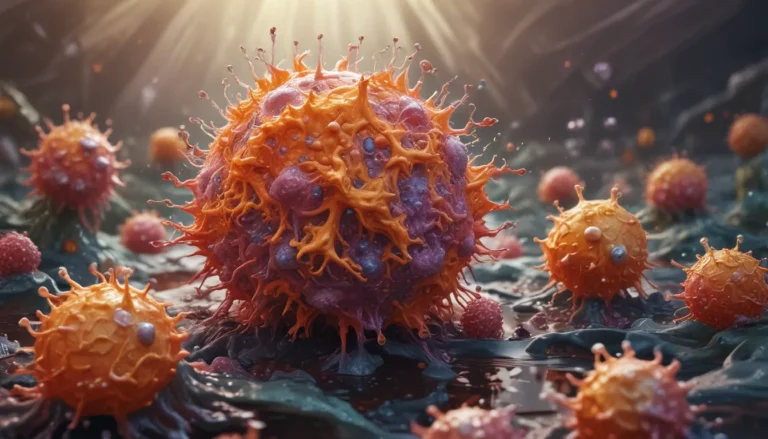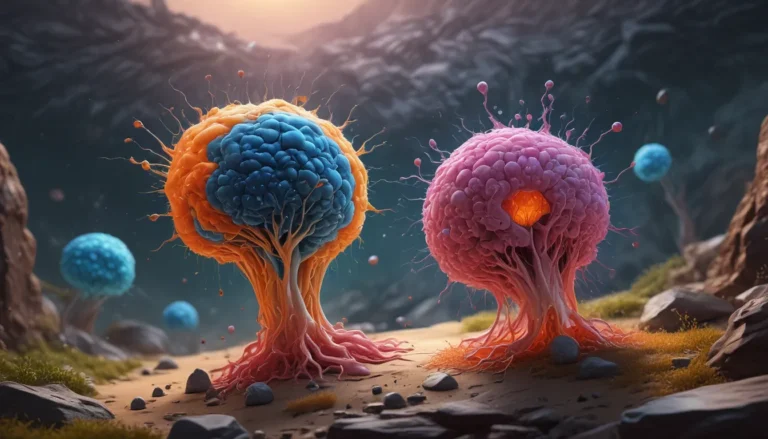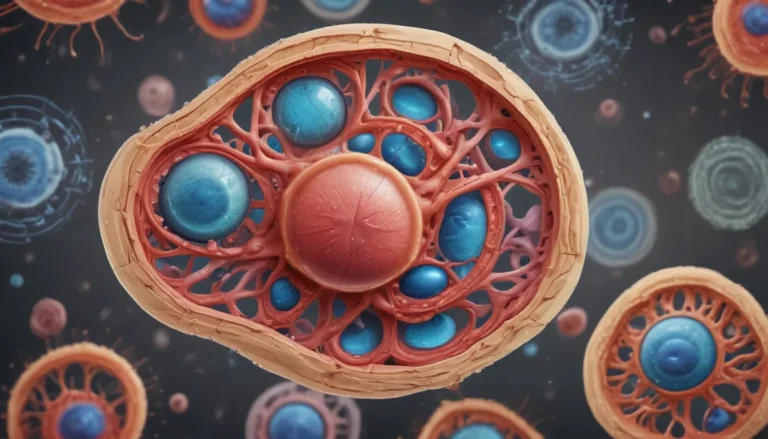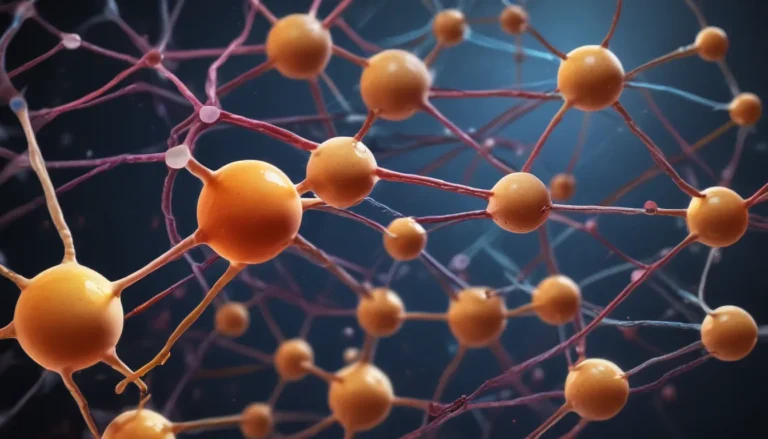A Note About Images: The images used in our articles are for illustration purposes only and may not exactly match the content. They are meant to engage readers, but the text should be relied upon for accurate information.
Developmental disorders are a captivating area of study that impacts the growth, learning, and interactions of individuals worldwide. These conditions have long intrigued scientists and medical professionals due to their complexity and diverse manifestations. From Autism Spectrum Disorder to Attention Deficit Hyperactivity Disorder, developmental disorders present unique challenges that require specialized care and support.
In this comprehensive guide, we will explore eight intriguing facts about developmental disorders. By delving into the latest research, we aim to uncover remarkable insights into the causes, symptoms, and potential treatments for these conditions. Whether you’re a medical professional, researcher, or simply curious about developmental disorders, this article will provide you with a detailed and insightful overview.
Understanding Developmental Disorders: Key Takeaways
- Prevalence: Developmental disorders are more common than you might think, affecting 1 in 6 children globally. Understanding their multifactorial causes and unique manifestations is essential for effective support and intervention.
- Early Intervention: Early detection and intervention play a crucial role in helping individuals with developmental disorders lead fulfilling lives despite the lifelong impact of these conditions.
Developmental Disorders Demystified
Developmental Disorders Are Not Uncommon
Contrary to popular belief, developmental disorders, also known as neurodevelopmental disorders, are prevalent worldwide. Approximately 1 in 6 children experiences some form of developmental disorder, highlighting the importance of awareness and understanding of these conditions.
The Complex Causes of Developmental Disorders
The origins of developmental disorders are multifactorial, involving a combination of genetic, environmental, and prenatal factors. While genetic predisposition plays a significant role, environmental influences and maternal health during pregnancy also contribute to the development of these disorders. This complex interplay makes studying developmental disorders both challenging and fascinating.
Diverse Manifestations of Developmental Disorders
Developmental disorders encompass a wide array of conditions that impact various aspects of an individual’s development. From challenges in language and communication to difficulties in motor skills, social interactions, cognition, and behavior, each disorder presents unique obstacles that require personalized approaches to intervention and support.
The Importance of Early Detection and Intervention
Early detection of developmental disorders is key to providing effective intervention and support. Identifying these disorders in early childhood enables the implementation of intervention programs, therapies, and educational support that can significantly enhance long-term outcomes. Early intervention facilitates the development of essential skills, improves social interactions, and enhances overall quality of life.
Lifelong Impact of Developmental Disorders
Developmental disorders are not conditions that individuals simply outgrow. These disorders often persist throughout a person’s life and can have enduring effects on their social, educational, and vocational capabilities. However, with appropriate interventions, support, and accommodations, individuals with developmental disorders can lead fulfilling and meaningful lives.
Uniqueness of Each Developmental Disorder
Every developmental disorder has its distinctive characteristics, diagnostic criteria, and treatment approaches. Conditions such as autism spectrum disorder, attention-deficit/hyperactivity disorder, intellectual disability, and specific learning disorders each present unique challenges that require tailored interventions and support strategies.
Co-Occurrence of Developmental Disorders and Other Conditions
Individuals with developmental disorders often experience co-occurring conditions or comorbidities. For instance, individuals with autism spectrum disorder may also deal with anxiety, depression, or sensory processing issues. Understanding these comorbidities is essential for providing comprehensive care and support.
The Role of Research and Advocacy
Continued research is paramount in deepening our understanding of the causes, mechanisms, and effective treatments for developmental disorders. Advocacy efforts are vital in raising awareness, reducing stigma, and ensuring that individuals with developmental disorders have access to the necessary support and resources to thrive.
Conclusion: Shedding Light on Developmental Disorders
Developmental disorders remain enigmatic conditions that affect individuals from a young age and persist throughout their lives. By promoting awareness, advocating for early intervention, and offering appropriate therapies, we can empower individuals with developmental disorders to lead fulfilling lives. It is crucial to extend support not only to those affected but also to their families and communities, fostering inclusivity and creating opportunities for all individuals to thrive.
Frequently Asked Questions
-
What are developmental disorders?
Developmental disorders are conditions that impact a person’s physical, cognitive, or social development, encompassing a range of challenges such as intellectual disabilities, autism spectrum disorder, and specific learning disabilities. -
What causes developmental disorders?
Developmental disorders have multifactorial causes, involving a combination of genetic, environmental, and neurological factors. Prenatal influences, such as exposure to toxins or maternal infections, can also contribute to these disorders. -
How are developmental disorders diagnosed?
Diagnosis of developmental disorders typically involves comprehensive assessments conducted by healthcare professionals, including psychologists, pediatricians, and therapists. These assessments entail a thorough review of medical history, behavior observation, and standardized testing. -
Can developmental disorders be treated?
While there is no cure for developmental disorders, early intervention and tailored therapies can significantly enhance an individual’s quality of life. Treatment options may include behavioral interventions, speech therapy, occupational therapy, and educational support. -
Are developmental disorders lifelong conditions?
Developmental disorders typically persist throughout life, but with appropriate interventions and support, individuals can acquire strategies to manage challenges and lead fulfilling lives. -
Can individuals with developmental disorders live independently?
The level of independence achieved by individuals with developmental disorders varies. While some may require ongoing support, others may be capable of living independently with intermittent assistance or in supported living environments. -
Can developmental disorders be prevented?
Prevention of developmental disorders is challenging due to their complex nature. However, certain measures, such as ensuring a healthy pregnancy, early intervention services, and creating inclusive environments, can help reduce the impact of these disorders. -
How can society support individuals with developmental disorders?
Society can support individuals with developmental disorders by promoting inclusivity, providing access to healthcare and education services, and creating employment opportunities that cater to their unique abilities. Fostering understanding, empathy, and acceptance can help reduce stigma and create a more inclusive society for all.
Developmental disorders continue to intrigue and challenge researchers, practitioners, and families worldwide. While this article has illuminated some of the intricacies of these conditions, there is still much to uncover. For those eager to explore further, our article on the TGFBeta signaling pathway offers captivating insights into the biological pathways involved in development.
Your Feedback Matters
We are committed to delivering accurate and engaging content that enriches the knowledge of our readers. Each fact shared on our site is contributed by individuals like you, ensuring a diverse range of insights and information. Our dedicated editors rigorously review each submission to maintain the highest standards of accuracy and credibility. Trust in our dedication to quality and authenticity as you continue to learn and grow with us.






